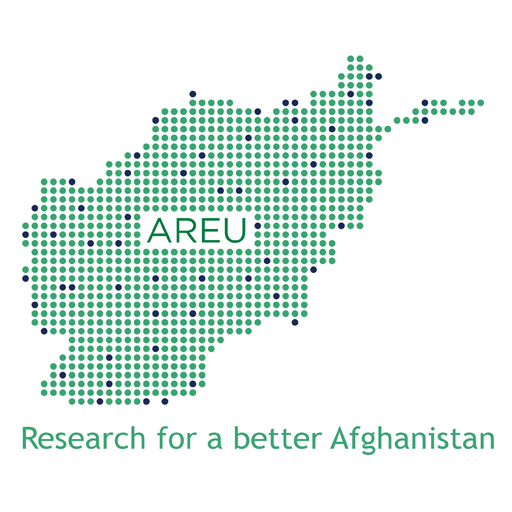
09 Feb Human Security and Drug Policy in Afghanistan, Executive Programme.
Human Security and Drug Policy in Afghanistan, Executive Programme, TERI School of Advanced Studies, New Delhi, January 27th-31st 2020
AREU co-delivered an Executive Program on “Human Security and Drug Policy in Afghanistan†that took place in New Delhi from 27 to 31 January 2020. As part of a trilateral initiative, the program was jointly run by AREU, the Global Drug Policy Observatory (GDPO) at Swansea University (UK) and the TERI School of Advanced Studies (TERI-SAS, India) on the latter’s campus in the Indian capital.

The Executive Program brought together nearly 30 Afghan women and men working in vital areas on drug policy. Participants included Afghan Deputy Governors, Deputy Ministers, officials from the Office of the President, Ministry of Interior Affairs, Ministry of Rural Rehabilitation and Development, Afghan Customs Department of the Ministry of Finance, Ministry of Public Health, Ministry of Agriculture, Irrigation and Livestock, Provincial Governors Offices, United Nations Office on Drugs and Crime, The Colombo Plan, NGOs that included the Organisation for Sustainable Development and Research, The Welfare Association for the Development of Afghanistan, Afghanistan Public Policy Research Organisation, Equality for Peace and Democracy, Afghan Red Crescent Society, as well as medical practitioners and PhD research scholars.
The Executive Program featured AREU Deputy Director Dr Nishank Motwani, Professor David Bewley-Taylor (GDPO, Swansea University, UK), Dr Chandan Kumar (TERI-SAS), Dr David Mansfield (London School of Economics, UK), Ross Eventon (University of Rosario, Colombia), Sai Lone (Myanmar Opium Farmers’ Forum), Tripti Tandon (Lawyers Collective, New Delhi), Dr Ravindra Rao (National Drug Dependence Treatment Centre, New Delhi), and Dr Kasia Malinowska (Global Drug Policy Program, Open Society Foundations & The New School, USA).

The Executive Program explored and critiqued a range of intersecting issues related to the illicit drug market within Afghanistan. It approached the topic from an evidence and rights-based perspective, familiarised participants with relevant UN treaty frameworks and system-wide initiatives. Focusing on national and regional levels, the Executive Program unpacked considerable attention to policy lessons learned and best practices from around the world to better understand the management of illicit drugs markets as a human security issue, including in relation to a broad spectrum of threats based around human rights and development. The Executive Program generated considerable discussion especially as the conversation shifted beyond the dominant approach of securitization of drugs and law enforcement and moved to challenging underlying assumptions. By the end of the week, the program led participants to reflect about what they know about the multifaceted challenges posed by drug use, production, trafficking, and in some instances, overly punitive counter narcotic policies.
One of the highlights of the Executive Program was a visit to a Community Drug Treatment Clinic (CDTC) in Ghaziabad, Uttar Pradesh. Funded by the Indian Ministry of Health and Family Welfare, the CDTC is open to all patients and mostly treats opioid dependency cases but also alcohol and tobacco dependency cases.
Participants learnt that the model of care went beyond dispensing methadone or buprenorphine to treat opioid dependency. Dr Rao noted that the CDTC provides a comprehensive package of services to patients consisting of psychologists, counsellors, nursing staff, ancillary staff, and PhD scholars and researchers. Apart from a INR 10 registration fee, treatment cost is free including seeing medical doctors and other care providers at the clinic. In explaining the model of the clinic to the participants, Dr Rao emphasised that the clinic was deliberately designed to be low cost so that it could be replicable in other parts of the country. Sharing some data, Dr Rao said that this particular CDTC had a catchment radius of 6-8 kilometres and served an estimated 2,000 registered patients of which around 500 visit the clinic on a daily basis to receive either methadone or buprenorphine. He also noted that the six-month retention rate is approximately 60 per cent which was in line with their expectations. To sustain and deliver treatment to patients that live far from the clinic, CDTC mobile ambulances dispense methadone and buprenorphine at fixed locations and timings each day which also has the effect of increasing the geographic reach of the clinic. In closing, participants learnt that the CDTC treats patients solely on consent as forced treatment is not only unethical but leads to a higher relapse rate. Publicity for the CDTC is via word of mouth only and not through outreach or advertising campaigns.

On the journey back to TERI-SAS, participants discussed the advantages, disadvantages and applicability of the CDTC as a potential model for opioid treatment in Afghanistan.
The concluding activity of the workshop involved participants breaking into pre-selected groups to design a practical solution to a policy problem of their choosing related to drugs. Each of the four groups defined a problem they wanted to tackle, identified the range of challenges their proposed interventions would encounter, and presented policy recommendations that conveyed the costs and benefits including how these recommendations would interact with existing policies and domestic and international stakeholders’ priorities and objectives. Each group presented its proposal in front of all the participants which generated a dynamic discussion.
The program concluded with all participants receiving a certificate of participation for attending the Executive Program. As a next step, AREU will engage the participants in Kabul to maintain the momentum generated through the program, promote knowledge exchange, and organise events with this group to build on the lessons learnt.

